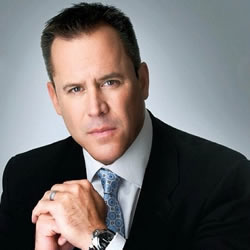The predictions business has been pretty good to me this year. Several of my novel concepts have hit the news cycle and, in the case of the Russia-Ukraine conflict, stayed there. While it’s gratifying to see my research produce books that are relevant in today’s world, it’s also disheartening. Reading about Mitch Rapp kicking butt in Eastern Europe is a lot of fun, but the reality of war isn’t. It’s a brutal, gut-wrenching enterprise that takes an unimaginable toll on the innocent.
So, let’s kick this year off with the biggest story of 2022…
RED WAR
My book, Red War, was published in September of 2018. I’d been wanting to write a story about a conflict in Europe for some time, but wasn’t sure how to realistically ignite it. Russia was the obvious catalyst, but why would someone with a reputation for rationality like Vladimir Putin (Maxim Krupin in the novel) do something so reckless?
Of course, there’s the motivation of pure megalomania. Giving a dictator great power for a long period of time has a way of twisting their perceptions. The old adage “absolute power corrupts absolutely” exists for a reason. And for someone like Saddam Hussein or the Kims in North Korea, that would have been plenty. But Russia’s a nuclear power and major player on the world stage. The idea that they’d embark on something this destructive in order to satisfy one man’s ego and delusions of empire seemed far-fetched.
In the end, illness seemed to be the most plausible motivation for my villain. A leader like Vladimir Putin rules very much through his aura of power. Shirtless horseback rides and his reputation as former KGB. Triumphant martial arts and hockey videos. He’s a man who’s seductive to worship and easy to fear.
But what if that aura of power and nationalism was suddenly taken from him? Without it, he would become vulnerable. But even if he were successful in holding off his enemies, with nothing to lose, his caution might give way to adventurism.
Shortly after Russia’s invasion of Ukraine, an unnamed oligarch was secretly recorded spilling the news that Putin was very ill and a Russian investigative outlet said Putin had seen an oncologist thirty-five times in the past few years. While the Kremlin would never admit this and still hasn’t, speculation intensified when videos showed a soft, puffy Putin making odd movements and gripping furniture in what looked like an attempt to control tremors.
Another prediction in my book related to the weakness of Russia’s military. The West has long suffered from a Soviet hangover that’s led us to treat Russia as though it’s still a superpower. Even prior to the war, they only had an economy about the size of Texas’ and a military budget that was less than one tenth of America’s. Sure, they have nukes, but their conventional capability has always been grossly overestimated. In reality the Russian army is wildly corrupt, poorly trained, poorly equipped, and poorly motivated. The idea that they could go toe to toe with NATO, particularly on the high-tech battlefield of today, has always been laughable. And now we see that writ large. The truth is that their nuclear arsenal is the only thing that’s preventing the US and its allies from wiping out their entire invasion force over the course of a long weekend.
THE UTOPIA EXPERIMENT
Years ago, I wrote three books based on high-concept plotlines rooted in technology. The Utopia Experiment explored what it might be like to have a computer interface implanted directly into your brain. Called the Merge, it was capable of overlaying a user’s vision with computer-generated images, bypassing their ears and sending sound straight into the auditory cortex, and directly integrating with various peripherals—a feature that had significant military applications.
This may not be limited to the realm of fiction for much longer. In December, Elon Musk’s company Neuralink announced that it’s preparing to start testing brain implants in humans. Musk claims that he’ll be able to restore sight as well as movement in people who have lost those capabilities.
The world is changing, and technology is advancing so fast that it’s hard to stay ahead of it. Every year, I worry more that reality will catch me between the time I conceptualize a book and get it on the shelves. Sometimes it’s hard not to look back fondly on the precarious stability of the Cold War and wonder how masters like Tom CIancy and John le Carré saw the world. Did it feel as breakneck to them then as it does to me now?
If you’re not following Kyle, connect with him on Twitter, Facebook, Instagram, or his website.


